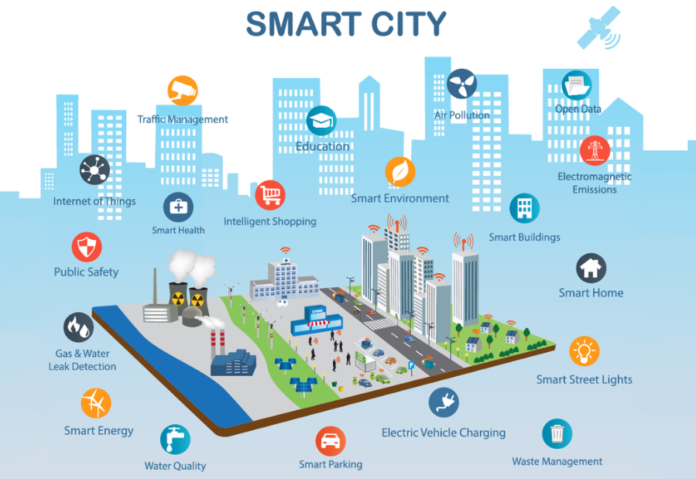Smart cities have surfaced as a way to address urban difficulties and enhance the quality of life for residents in the age of constantly evolving technology. At the center of this transition lies edge computing, a new paradigm that is transforming the way data is processed, analyzed, and acted upon. Edge computing is enabling smart cities to become more sustainable, safe, and efficient by moving processing capacity closer to the location of data creation. The development and functioning of smart cities are being significantly impacted by edge computing, as this essay examines.
Enhanced data processing and real-time insights
The capacity of edge computing to handle data locally and in real-time is one of its main benefits in smart cities. Cities can effectively handle the huge volumes of data created by various IoT devices and sensors while reducing latency by placing edge computing infrastructure closer to the sensors, devices, and endpoints at the edge of the network. Because of this closeness, it is possible to analyze data, make decisions, and respond to citizen needs more quickly, which boosts operational effectiveness.
For instance, edge computing can handle real-time traffic data from linked cameras and sensors in a smart transportation system, allowing for quick analysis of traffic patterns, congestion identification, and dynamic route optimization. This enables local governments to put effective traffic control plans into place, easing traffic and enhancing transport infrastructure as a whole.
Increased reliability and resilience
In order to guarantee the dependability and robustness of the infrastructure of smart cities, edge computing is essential. Cities can lessen the impact of network interruptions and prevent a single point of failure by spreading computing resources among multiple edge nodes. Edge devices can process and store data locally in the case of a network outage or lack of connectivity, guaranteeing the continued operation of vital services.
Furthermore, edge computing frees edge nodes from the dependency on a centralized cloud infrastructure, allowing them to operate independently and make decisions in real time. The resilience and dependability of smart city applications like environmental monitoring, public safety, and emergency response systems are improved by this dispersed intelligence.
Enhanced Security and Privacy
Smart cities handle sensitive data and vital infrastructure; therefore, security and privacy are top priorities. By minimizing the need to send data to a centralized cloud for processing and analysis, edge computing allays these worries. Sensitive information does not need to travel across the network as much when it can be processed and filtered at the edge.
Edge computing lowers the attack surface and possible areas of vulnerability by doing local data analysis. It guarantees a proactive approach to cybersecurity by enabling real-time threat detection and mitigation. Additionally, edge computing enhances privacy protection and upholds compliance with data regulations by enabling data anonymization and selective sharing.
Sustainable Infrastructure and Energy Efficiency
Edge computing optimizes resource utilization and lowers energy usage, which helps smart cities achieve their sustainability goals. Edge computing reduces the need for extensive, sometimes energy-intensive data transfers to remote cloud data centers by processing data closer to the source.
Furthermore, edge devices can exploit locally renewable energy sources, such as solar panels and wind turbines, for power supply. By encouraging the use of clean energy and reducing dependency on conventional energy systems, smart city infrastructure becomes more sustainable and eco-friendlier.
Conclusion
By facilitating better data processing, real-time insights, increased dependability, and enhanced security, edge computing is revolutionizing smart cities. It gives communities the ability to optimize services, make data-driven decisions, and raise residents’ quality of life in general. Edge computing opens the door to a more effective, safe, and sustainable urban future by putting computer power closer to the point of data production. Edge computing will continue to be at the forefront of technology development as smart cities develop, spurring innovation and improving urban living.






